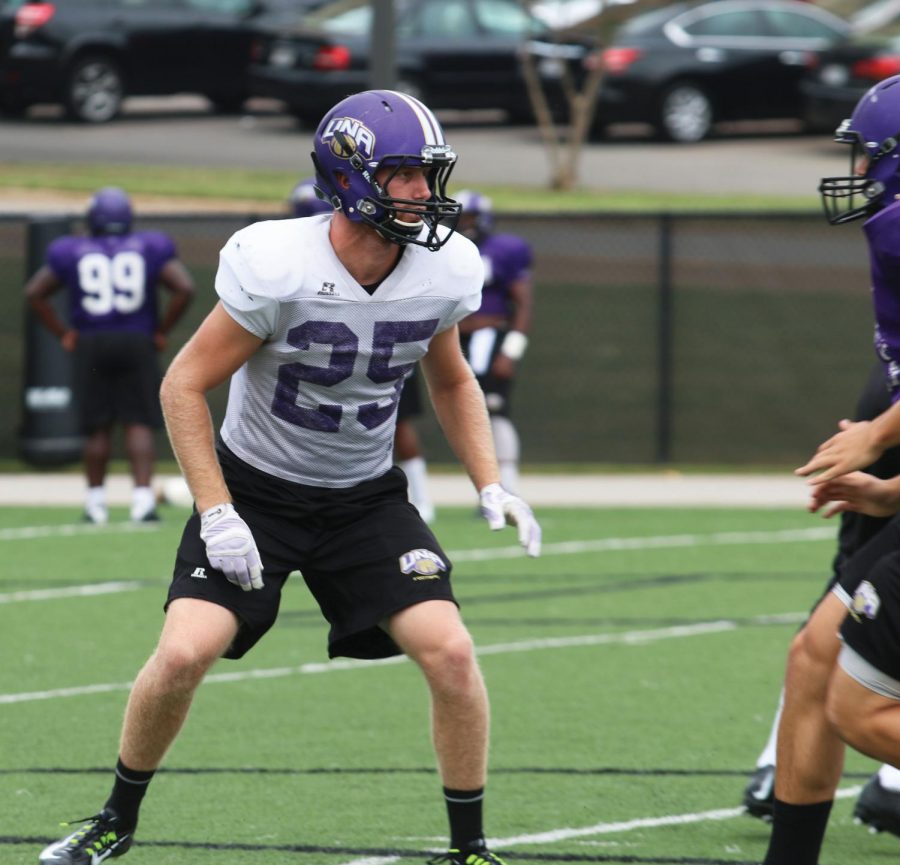Concussions end former wide receiver’s career
November 12, 2015
He took one hard hit to the wrong part of his head, and his career was over.
Due to an overwhelming amount of concussions, former senior wide receiver Eric Belew made a difficult life-changing decision Nov. 5. Belew decided his long-term health took priority over his football career, as he announced his playing days were over.
“This is my sixth concussion since my sophomore year of high school,” Belew said. “I asked the doctor what he would do, and he said he wouldn’t even think about playing again. I was crushed. I didn’t even think it would end that way, but I started understanding my health was more important than football.”
While the decision was tough for Belew, he said the ultimate decision came from thinking about his future goals.
“I’m very aware of what brain injuries can do,” Belew said. “I want to have a family when I’m older and be the best man I can be, so that’s not something I wanted to risk. My coaches and teammates didn’t want to risk that, either. Everyone supported me and felt I made the right decision.”
Concussions are one of the more prevalent injuries in football, as more and more players are forced to end their careers sooner than expected. Thirty-nine percent of sports concussions increase the chances of permanent neurological disability, according to headcasecompany.com.
“Any type of brain injury, whether it’s football or non-football, is serious,” said UNA athletic trainer Josh Penny.
Concussions are common for all athletes, not just football players, Penny said. A concussion can occur from an athlete hitting their head on a hardwood floor in basketball or volleyball, he said.
Penny said the symptoms of concussions are dangerous and victims should not take them lightly. He said athletes should take proper precautions for their protection.
“You really can’t prevent concussions, but you can cut down the risk,” he said. “Making sure the helmet fits properly, where it’s not too loose, and tackling properly with your facemask up helps lower the risk.”
Sophomore Brian Puckett said he has suffered two concussions in his career (one in high school, one in college) and commends Belew’s decision.
“Concussions are pretty serious,” he said. “After mine, I woke up the next day not knowing where my car was. I didn’t know where my phone was, my bookbag or anything. I couldn’t imagine having that for the long term.”
Although Belew’s playing career is over, he said his passion for the sport will keep him around the game.
“I still feel like I’m a player,” he said. “I’m glad to be out here and support the team, helping the younger guys any way I can. I’m still a Lion, and I’m forever grateful to this program and whats it’s done for me.”
UNA head coach Bobby Wallace said whether or not Belew is on the field, he is still a part of the team.
“Eric is a strong asset to this team,” Wallace said. “He’s had a lot of concussions, so he’s making a wise decision not to play anymore. We support that totally, but we also want him to continue to be a part of this team because he’s such a great leader. He’s still a part of this program, and his presence means a lot to us.”
With Belew on the sidelines, the Lions return to Braly Stadium Nov. 14 to host West Alabama, closing UNA’s regular season. A win over the Tigers gives UNA at least a share of the Gulf South Conference championship.


